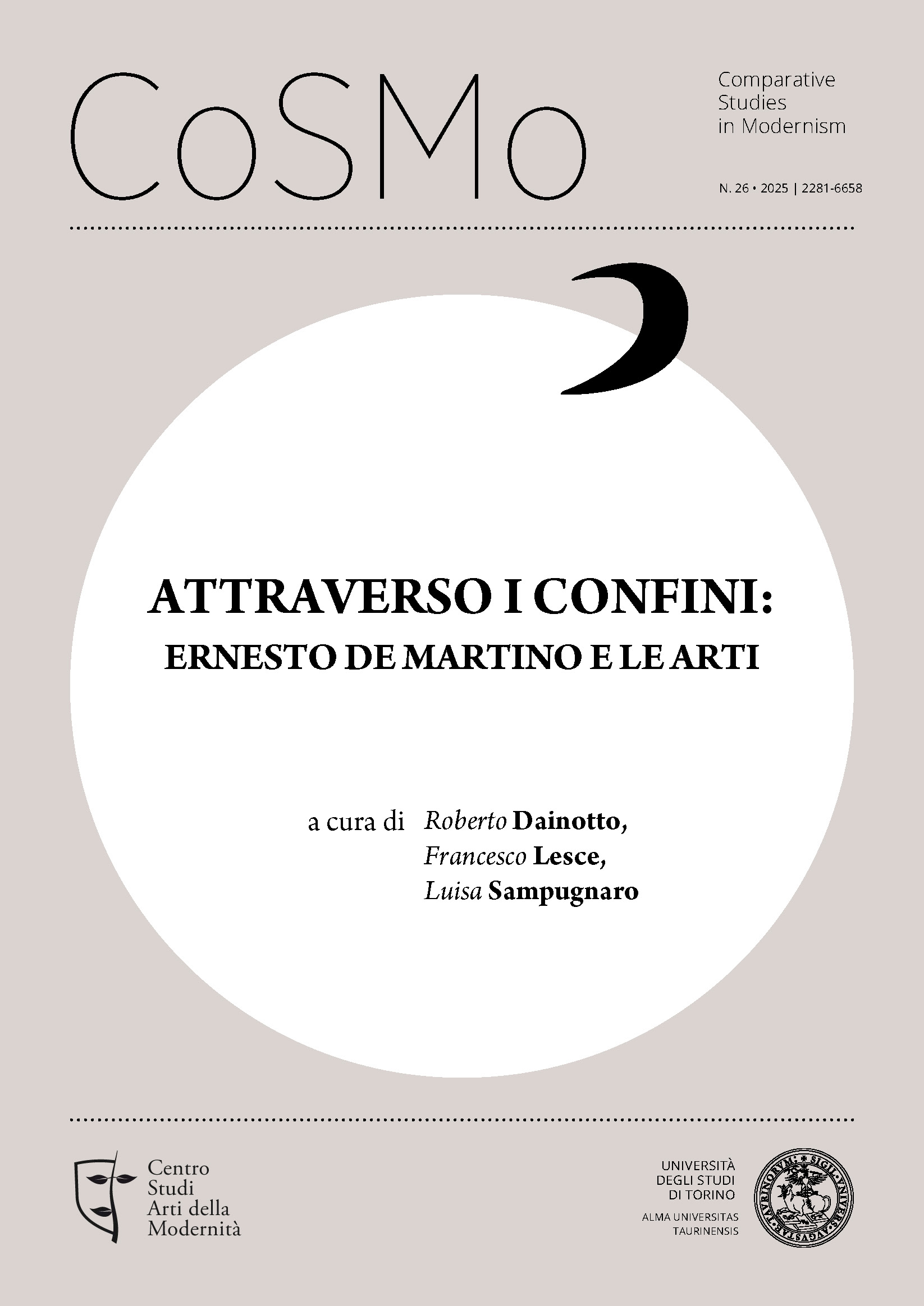Crisis, Culture, and Creation
Ernesto De Martino’s Ethos of Transcendence beyond Cassirer and Heidegger
DOI:
https://doi.org/10.13135/2281-6658/12176Parole chiave:
Ernesto De Martino, Presence, Ethos of Transcendence, Crisis of Meaning, ModernityAbstract
This article examines how Ernesto de Martino’s ethos of transcendence carves out a moral path beyond the apparent impasse between Martin Heidegger’s emphasis on human finitude and Ernst Cassirer’s focus on the constructive power of symbolic forms. In the wake of two World Wars and Europe’s collapse into crisis, de Martino recognized that modern culture itself could disintegrate—what he termed the “risk of losing presence.” Drawing on anthropology, history, and philosophy, he argued that ritual, myth, and collective decision-making can continually renew shared horizons of meaning. By analyzing de Martino’s critical engagements with both Cassirer’s Philosophy of Symbolic Forms and Heidegger’s ontology of thrownness, the article demonstrates how de Martino forges an ethos of transcendence that underscores the ethical imperative to rebuild communal worlds whenever they threaten to collapse. This perspective provides a powerful lens for addressing contemporary challenges—from environmental degradation to social fragmentation—where the “end of the world” looms large. Rather than endorsing naive rationalism or surrendering to existential despair, de Martino urges moral agency: a renewed duty to be in the world, forging cultural frameworks that sustain our collective stories in moments of acute crisis.
Downloads
##submission.downloads##
Pubblicato
Fascicolo
Sezione
Licenza
Gli autori mantengono i diritti sulla loro opera e cedono alla rivista il diritto di prima pubblicazione dell'opera, contemporaneamente licenziata sotto una Licenza Creative Commons - Attribuzione che permette ad altri di condividere l'opera indicando la paternità intellettuale e la prima pubblicazione su questa rivista.






